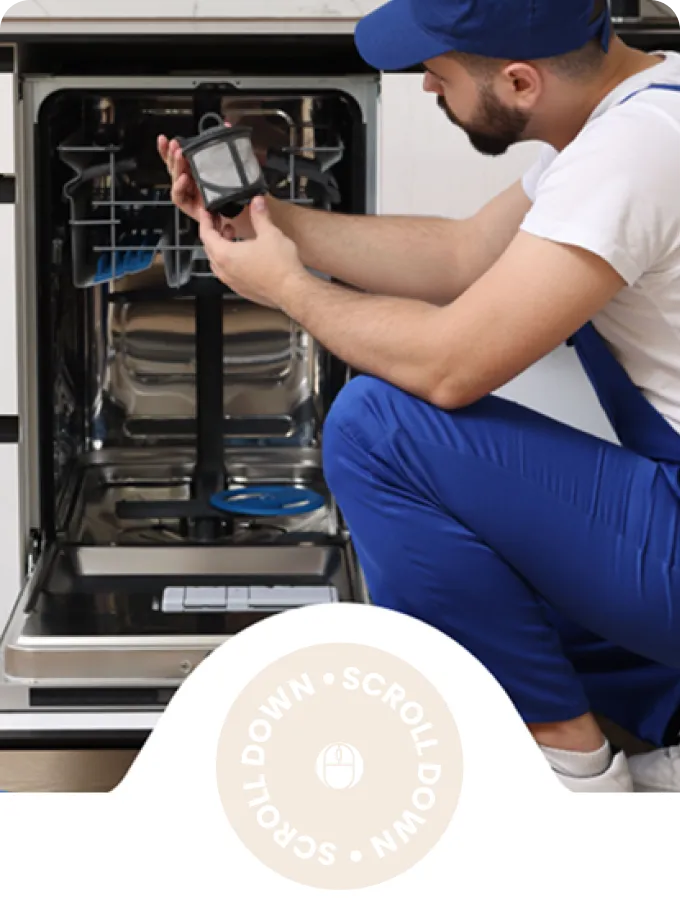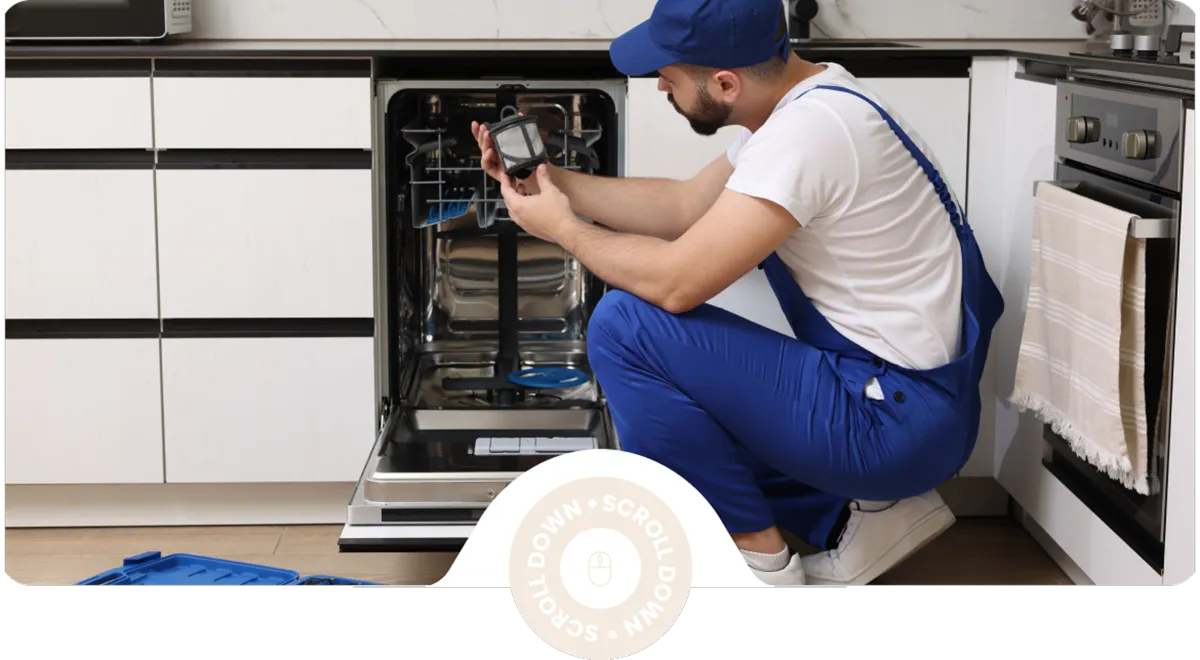
Your Trusted home care service for Hiring the right caregiver for your aging parents
Your Loved One Deserves the Right Caregiver — Not Just Anyone.
Most families hire caregivers based on gut feeling, a friend’s referral, or whoever the agency sends that day.
But when the match is wrong, everyone feels it.
A poor fit leads to frustration, mistrust, and constant turnover.
You feel overwhelmed and burned out.
Your aging parents feel stressed, unsafe, and lose confidence in accepting help.
Caregiving is not just a job — it’s a relationship.
And the wrong relationship makes home care harder than it should be.
Book your appointment today and let us take care of hiring the right caregiver for you!
Join 200+ happy customers using our service today




Your Trusted Partner for Quick and Reliable Appliance Repairs
From fridges to washing machines, we’re here to fix it fast, so you can get back to your routine with ease. Book your appointment today and let us take care of the rest!

Join 2,000+ happy customers using Personal Aid Home Care today


PROBLEM
why "friend referral" or just " randomly assigned one by a home care agency" or family hire one often fails?
A caregiver oversell themselves in interviews.
Families or Home Care Agency only see the "best version", not the real daily behaviour
Families don't know what questions to ask.
Important traits like emotional stability and boundaries are never assessed
Cultural habits and personality traits are hidden.
You won't know if the caregiver's style truly fits your parent until it's too late.
No way to validate emotional compatibility.
Two good people can still clash - this leads to
resistance and stress
Results depend on luck, not logic.
Matching becomes a gamble, not a system
Seniors reject caregivers after 1-2 days or even months - stress +wasted money
Mismatch = arguments, discomfort, and anxiety for seniors
Constant turnover affects seniors' mood, routines, and safety
Inconsistent care lead to confusion, especially for
dementia clients
PROBLEM
Facing Appliance Issues? We’ve Got You Covered!
Home appliances should make life easier, not harder. Here are the common problems you might face and how we solve them.
Is your fridge not maintaining the right temperature? This can cause food spoilage and unnecessary waste.
A washing machine that doesn't spin or drain can leave your clothes soaked and your day delayed.
Is your dishwasher leaving dishes dirty after every cycle? This issue can stem from a variety of causes, including clogged spray arms or drainage problems.
THE SOLUTION
Avoid Mismatches —
Choose the Caregiver Match System Families Trust
A proper match saves time, money, and emotional stress
Get Your Caregiver Compatibility Assessment Today
Book Your Free Assessment
Our Ultimate Solution to Find the Right Caregiver by Caregiver Match System

The Caregiver Match System is built on
the same scientifically validated work-behaviour assessments
used by leading organizations to evaluate employee fit and performance.
When you combine this insight with a proper caregiver interview,
you gain a clear understanding of who is truly the right caregiver.
With the right match, you avoid burnout, reduce stress,
and finally experience peace of mind
knowing your parents are being cared for by someone
who understands their needs, personality, and daily routine.
TESTIMONIALS
What our clients say about us
Discover the experiences of our satisfied customers! Read their testimonials to learn how our services have make their life easier.
OUR SERVICES
Our Cargiver Match System is the Solution to
Your Aging Parents
Bringing expert care and work ethics to every home—so your parents can enjoy the quality of life without the stress.
Personality Match
Analyze personalities such as temperament, communication style, patience level, emotional needs, social preference, structure vs flexibility.

Job Behavior Match
Predict caregivers' behavior under real work pressures - stress, routine, decision-making, and independence

Motivation & Drivers
Reveal what motivates the caregivers and keep them committed and emotionally invested in the work, so they can stay longer, have more passion and more patience, provide consistent care and feel less burnout

Risk Alerts
Flag potential issues - stress triggers, conflict tendencies, burnout risks, or flexibility issues

HOW IT WORKS
Simple, Fast, and Reliable Match
From booking to completion, our easy process ensures your appliances are fixed quickly and efficiently—without the hassle.

Schedule Your Appointment
Choose a convenient time for you to do a virtual meeting with us and tell us your ideal caregiver for your parents

We Screen & Match Caregivers For You
We conduct interviews, reference checks, work-behaviour assessments, and compatibility scoring to make sure the caregiver is a good fit

Meet Your Best-Fit Caregiver
We facilitate a video meeting between you and the caregiver so you can feel confident before hiring.
FAQ
Frequently Asked Questions
Everything you need to know about the service and billing.
What is the difference between Full Service and CareLink?
Full Service is a complete home-care solution — a registered nurse assesses your parent, creates the care plan, matches the caregiver, manages the shifts, supervises quality, and provides ongoing support.
CareLink is a one-time matching service — we help you find the right caregiver using our scientific matching system, but you manage the caregiver afterward.
How does the Caregiver Matching System work?
We use a combination of:
work behaviour assessment
Personality compatibility analysis
Care needs mapping
Cultural and language alignment
This ensures the caregiver naturally fits your parent’s personality and daily routine, reducing conflict, stress, and turnover.
Do you replace caregivers if they don’t work out?
Full Service: Yes. We handle all replacements, performance management, and scheduling.
CareLink: You receive one best-fit match based on our assessment. If you need another, you can request an add-on service.
How long does the matching process take?
Most matches are completed within 48–72 hours once we receive the questionnaire.
Urgent cases can be expedited.
Benefits of Choosing Our Caregiver Match System

The search for the right home care for my mother led me to Personal Aid Home Care. We’re so grateful for the care and kindness shown to our mother. We can rest easy knowing she’s receiving excellent support every day.
-- Sophie B.
Daughter
HERE’S WHAT YOU’ll GET
Benefit 1: Matched by personality, behaviour, culture, and care needs
Benefit 2: A Science-Backed Compatibility Report
Benefit 3: Compatibility = stability.
Your parent receives consistent care
Benefit 4: Satisfaction guarantee
Benefit 5: Less stress, less guilt, less uncertainty
Benefit 6: Your parents feel understood, respected, and cared for — every day
ABOUT US
Hi, I’m Weili Gaudet
19+ years of experience
As a registered nurse with a decade of experience in senior care, we have built a reputation for providing quick, reliable, affordable services and the most important that we provide the right caregiver for seniors.
200+ trusted
Our customer base includes thousands of happy customers who trust us for their parents needs. We strive to ensure every customer is satisfied with our service.
50+ trained Caregivers
Our caregivers are continuously trained to stay up-to-date with the latest care credentials and care techniques.

100% Money Back Guarantee
Your satisfaction is our priority. If you’re not fully satisfied with our service, we offer a money-back guarantee.
We’ll fix the issue, or you’ll receive a full refund. No questions asked!

Ready to Get Your Reliable Caregiver?
Don’t wait! Book your appointment today and enjoy fast, professional, and affordable service that you can count on.

Subscribe to our Mailing List
